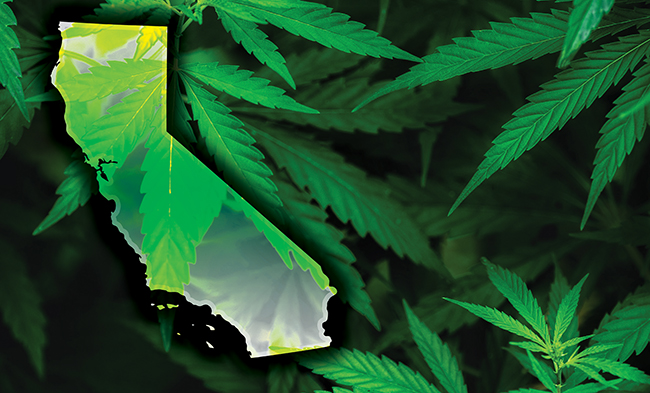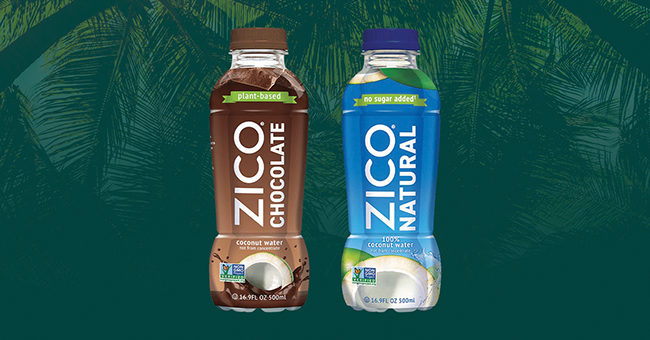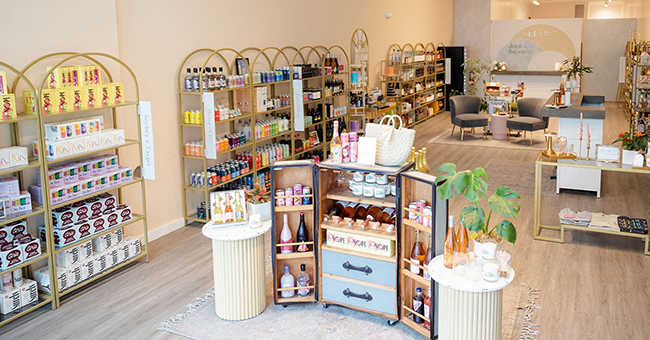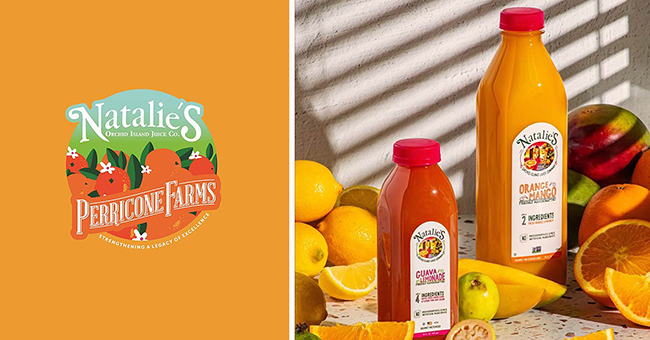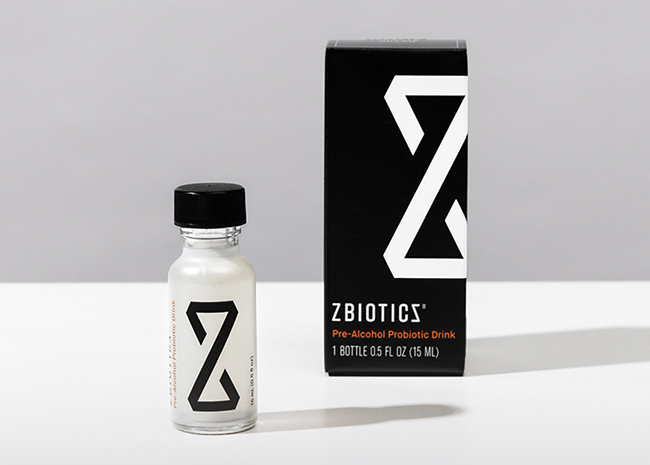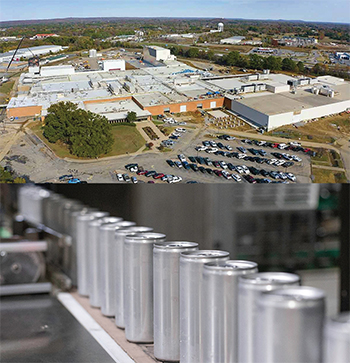Bevscape: The Latest Beverage Brand News
California Moves to Shut The Door On Hemp-Derived THC Products
Citing concerns over public health, California Gov. Gavin Newsom proposed heavy restrictions on “intoxicating hemp products” in September. Through an emergency regulation, Newsom proposed removing food and beverage products containing hemp extract from stores within the Golden State.
“We will not sit on our hands as drug peddlers target our children with dangerous and unregulated hemp products containing THC at our retail stores,” Gov. Newsom said in a press release. “We’re taking action to close loopholes and increase enforcement to prevent children from accessing these dangerous hemp and cannabis products.”
The executive order puts very stringent regulations on hemp-derived THC products, including delta-8 and delta-9 tetrahydrocannabinol along with 30 new cannabinoids added to the state’s list. The new regulations ban any detectable quantity of THC from industrial hemp products meant for human consumption — which includes food, food additives, beverages and dietary supplements.
This means that the new milligram limit for hemp-derived THC products is zero, relegating all THC product sales to the recreational adult-use and medicinal dispensary channels.
The regulations also age-gate hemp extract products at 21 years or older with packages restricted to 5 servings. The move is intended to place harsher restrictions on the hemp extract industry as the incidence of children unknowingly buying and consuming THC-containing products has risen with the explosive growth of intoxicating hemp-derived cannabinoids like Delta-8 and Delta-9 THC, according to Newsom.
Newsom lobbied for California’s Proposition 64, or the Adult Use Of Marijuana Act which legalized cannabis in the state, as lieutenant governor in November 2016. As governor he went on to help pass the state’s Assembly Bill 45 in November 2021, which addressed the use of industrial hemp as an adulterant in food and beverage.
“None of us expected the kind of exploitation that we’ve experienced in the hemp industry since,” he said in a press conference. “What we’re doing today, as relates to emergency regulations, is because of that exploitation – because of the greed of many folks in the industry.”
The news comes on the back of a failed legislative attempt in August to amend existing oversight of intoxicating hemp products to the state’s Department of Cannabis Control.
“We’re here to regulate this industry. We were hopeful that we were going to get that done,” Newsom said. “Assemblywoman [Cecilia] Aguiar-Curry had a bill to address the issues and address some of the complexities and nuances. We don’t want to kill the hemp industry.”
Industry stakeholders like the U.S. Hemp Roundtable criticized the governor’s approach calling it a “betrayal of California hemp farmers, small businesses, and adult consumers,” in a statement from the lobbyist’s general counsel Jonathan Miller.
California joins a series of state-led approaches to rein in the hemp-derived THC market. Indiana, Iowa, Oregon, Missouri and New Hampshire are just some of the states using enforcing, serving size and cannabinoid formulation requirements to heavily limit the reach of hemp extract businesses.
Chris Gallant Named CEO of ZICO Rising
Going from coffee to coconuts, Chris Gallant has been named CEO of ZICO Rising, joining the resurrected coconut water brand after he announced his departure from influencer-founded startup Chamberlain Coffee.
Gallant succeeds ZICO CEO Tom Hicks, who is staying with the brand in the role of chief commercial officer.
Gallant’s appointment comes as ZICO Rising enters a new phase focused on driving distribution while thinking “very strategically” about the brand and category, according to founder Mark Rampolla. The no-sugar-added coconut water company recently landed its product line – which includes Natural and Chocolate varieties – at select Costco locations. The brand also has distribution at Whole Foods Market, Kroger, Safeway, Albertsons and Walmart, among others.
Rampolla purchased ZICO Rising (then just ZICO) back from The Coca-Cola Company in 2021 after Coke discontinued the brand in 2020 as part of a mass culling that trimmed 200 underperforming global brands from its portfolio. He said that Hicks – who joined as CEO in 2021 – did an “extraordinary job” getting ZICO Rising from zero to where it is today, calling it the top-growing brand in the category (albeit one with a much smaller distribution and sales base).
Gallant said he is excited to see where he can take ZICO Rising while keeping the focus on its core products, especially given the recent boom in demand for coconut water. Coconut water category unit sales volumes are up 13% overall over the past 52-week period ending August 24, and dollar sales were up 26.5% over the same period, according to NielsenIQ data compiled by Goldman Sachs.
“We’ll be thinking about how we can reach new audiences with these core products,” said Gallant. “You can really see the growth of coconut water and hydration products in both liquid and powder form. And I think coconut water is the best way to hydrate.”
Gallant comes to ZICO after spending three years as CEO at Chamberlain Coffee, the coffee and lifestyle brand founded by social media star Emma Chamberlain – who took over as co-CEO in August following Gallant’s departure.
During his tenure at Chamberlain Coffee, Gallant grew the startup into a national brand found in over 12,000 retailers. He also helped the company grow its portfolio with ready-to-drink (RTD) lattes and expand internationally into Canada.
ZICO Rising is now doubling down on routes to market, innovation and consumer positioning, which will allow Hicks to focus on selling while Gallant focuses on strategy.
Dry Drinks Curator Sèchey Soaks Up New Funding from InvestBev
As it looks to expand its own branded line of NA wines in retail this fall, no- and low-alc drinks “curator” Sèchey announced in August that it had received an investment from adult beverage-focused private equity firm InvestBev. Terms of the deal were not disclosed.
The new funding comes in a mainstream coming out year for Sèchey, which was founded by CEO Emily Heintz in 2021 as a brick-and-mortar boutique for NA alcohol alternative drinks in Charleston, South Carolina and online retailer.
In January, Sèchey partnered with Target to curate the mass retail chain’s NA alternatives set in stores, stocking brands selected by Sèchey (including De Soi, Kin Euphorics and Ghia among others) as well as the company’s private label dealcoholized wines sold under its own name.
Since then, Heintz said the Target partnership has quickly helped Sèchey to grow brand awareness and it is now preparing to roll out its branded wines in the New York market next month, to be facilitated by a distribution partnership with ProofNoMore.
“Our own brand was always part of our strategy, and launching at mass helped us bring the product to market faster,” Heintz told BevNET, adding that as Sèchey grows, the company aims to build both its own CPG line and its retailer and curation business simultaneously. “I believe it’s complementary to a multi-brand strategy that we can sit next to a lot of brands and brand partners.”
The deal also marks a deeper step into the NA alternatives category for InvestBev, which has previously invested in alcohol brands across categories such as Siempre Tequila, JuneShine and ecommerce platform Speakeasy Company.
Brian Rosen, founder and general partner of InvestBev, told BevNET that the firm had been looking to make a serious investment in an NA alternatives company for the past three years; although it has previously invested in cannabis social tonic brand Cann, Sèchey is the first in its portfolio to focus on “dryish” non-intoxicating products, as well as the first investment from the firm’s $150 million Fund V.
“I think that Emily and her team have gotten farther with less than everyone else we’ve seen,” Rosen said. “It could be less support, it could be less capital, the word ‘less’ can be anything. But to have a foothold into a mass merch retailer, to have a storefront, to understand the difference between DTC and in-person retail, all of those things really speak to me.”
The global market for low- and no-alc alternatives was valued at over $13 billion as of January, according to Boston Consulting Group and, per IWSR, the category is projected to grow at a compound annual growth rate of 7% between 2023 and 2027.
While the category continues to expand, the sector was rocked this year by the abrupt bankruptcy of another specialty NA retailer, Boisson. While that company reported revenue of around $10 million last year, it ultimately struggled to pay debts while juggling higher operational costs for its nine retail locations.
For Sèchey, however, the relationship with InvestBev provides the company with an established partner in the adult drinks sector, as well as access to its team. Rosen said he believes the brand, alongside other fast-rising businesses like NA beer maker Athletic Brewing Co., has “first mover advantage” and said the category is still “in the first inning of a nine inning game.”
Perricone Farms Acquires Natalie’s Orchid Island Juice Company
Craft juice company Perricone Farms acquired Fort Pierce, Fla.-based Natalie’s Orchid Island Juice Company in September. Terms of the deal were not disclosed.
The merger will allow Newport Beach, Calif.-based Perricone Farms to take advantage of bi-coastal production facilities, improve its delivery capabilities, expand its product offerings and leverage its additional scale to ensure the quality of both companies’ juices, the company announced in a press release.
Founded in 1989, Natalie’s started out selling orange and grapefruit juices but now boasts a wide range of juice products, including holistic juices, citrus juices, exotic blends and lemonades.
Perricone Farms was founded in 1994 by Sam Perricone – one of the largest citrus growers in the U.S. at the time – along with his eldest son, Joe. The company offers a range of citrus and apple juices in both conventional and organic varieties produced at its manufacturing facilities in Beaumont, Calif., and Vero Beach, Fla.
So, can two legacy juice manufacturers become a major force in a stiff category? Perricone Farms CEO Bob Rovzar said the business is looking towards national and international expansion with the purchase of Natalie’s. The combined business will maintain both brands, while utilizing production facilities on both coasts to scale production and shore up the supply chain in a time where quality fruit supply is challenged.
“From our side, it would have been one of these dreams for us to be able to partner with a company like Natalie’s,” Rovzar said. “So when we had the ability to get involved, we jumped at it and just feel really excited about the combination being really well poised to provide a premier product.”
Natalie’s marketing head Natalie Sexton (the brand’s namesake) will remain with the combined business as CMO, while her mother – founder and CEO Marygrace Sexton – will move into an advisory role.
Rovzar said that Perricone intends to “virtually bring over the team intact” from Natalie’s.
“The synergies are perfectly aligned,” said Natalie Sexton. “We have very similar brand values, our ethos are aligned, and their commitment to quality and customer service matches ours. And so you couldn’t find a better partner to really help, one, set the tone and foundation to continue to build Natalie’s, but to really fuel us for growth in the future.”
‘Proudly GMO’ ZBiotics Closes $12M Round, Plots Retail Expansion
ZBiotics, a food tech startup developing a slate of functional CPG products made with genetically modified probiotics, closed a $12 million Series A funding round in August led by Spring Tide Capital.
Joining Spring Tide are several other CPG-focused finance firms, including Access Capital, Seamless Capital, Goat Rodeo Capital and Seaside Ventures.
Founded in 2016 by CEO Zack Abbott, who holds a PhD in microbiology, ZBiotics touts itself as a “proudly GMO” company engineering probiotic strains for hyper-specific use occasions. Its first, and to-date only, product launch has been a before-you-drink “Pre-Alcohol” hangover prevention shot, sold in 0.5 oz. bottles.
Available primarily online, with some limited testing in brick-and-mortar stores this year, ZBiotics Pre-Alcohol shots are sold at a bit more of a premium than many competitors in the hangover prevention drink category, averaging between $9-$12 per bottle depending on purchase size directly from the brand’s website. However, Abbott says the shots have repeatedly doubled in sales year-over-year, with a cumulative 5 million sold to date and achieving profitability in 2023.
The new financing is set to bankroll the brand’s expansion into retail while also supporting additional R&D efforts with plans for a full portfolio of future products. Upcoming ideas include a gut health and digestion product set to launch in the coming weeks, as well as in-development sleep, vaginal health and athletic performance products.
“We’re in a really good position with lots of growth,” Abbott told BevNET. “We felt like it was a really great time to put some gasoline on the fire for some of the really exciting initiatives we have planned.”
Westrock Kicks Off New Era in Conway
As you pass the first doors onto the warehouse floor, the first thing you notice about Westrock Coffee’s new facility is the space itself. Far on the other side of the room, a production line is humming along making the first batches of RTD product to come out of the 524,000 square foot, $315 million hub at the centerpiece of Westrock’s ambitious goal to transform from a high-volume importer and roaster to a complete coffee services master brand. The empty real estate itself underlies an essential fact of the plant: this is built for the long-term.
Westrock’s facility is a high-stakes gamble for the family owned company, which went public via a SPAC merger in 2022. Its recent Q2 earnings report underlined the urgency of making this experiment work: a $17.8 million loss on the back of a 7.3% sales decline, which narrowed full-year guidance. Still, CEO Scott Ford pointed to the positive: multi-serve bottles and cans were finally coming off the line at Conway, and the clawback to growth was well underway.
The plant sits within an unassuming business park in Conway, a city about 25 minutes outside of Little Rock that’s home to Central Arkansas University. Pulling up into the parking lot on a hot July day, the low-rise buildings mask the expansiveness of the 45-acre campus, an operation designed to handle all aspects of coffee save for actually growing the plant. Roasting, grinding, extraction and packaging (not just bottling) — plus refrigerated storage — are all under one roof, complemented by a 530,000 square foot distribution warehouse two miles down the road for ambient.
Inside the facility doors, however, nothing is unassuming. The massive space houses massive equipment: silos with collective capacity in excess of one million pounds of green coffee, a pair of Scolari Roasters churning through 360 kg per batch (running 8 hour shifts six days per week), a canning line capable of doing 1,600 units in just 45 minutes.
The calculation is simple: by investing heavily early on in equipment and pre-selling capacity (about 75% of which is now booked), Westrock will have the efficiency and infrastructure in place to rapidly commercialize and realize dividends — at which point the plant can scale with an additional four to six packaging lines.
Though relatively small compared to other rooms in the sprawling plant, Westrock’s R&D department, under the guidance of director Stephanie Gonzalez, is perhaps the key component of the entire operation. Other facilities can execute many of the same manufacturing processes, but having seasoned in-house product development allows the company to enhance its value at both the top and bottom of the funnel. It supports the ability to begin working with clients at a more conceptual stage; Reading between the lines, it’s easy to see why this might be appealing to celebrities (like Tom Hanks’ non-profit brand Hanx For Our Troops) or private label clients seeking to simplify their on-ramp to market.
The plant’s batching system operates up to four lines simultaneously, allowing retort-required products to be developed in nine months. For non-retort, samples can be produced in as little as two to three weeks.
At the other end of the spectrum, it provides greater fine-tuning controls for brands looking to dial in unique flavor notes and incorporate dairy or alt-dairy ingredients. Issues can be fixed or iterated over the course of small-batch production runs.
Westrock’s success may depend more on external factors, though, than their ability to pump our products. Americans love their coffee as much as ever, but increased competition from energy drinks, improved in-store coffee programs and other factors have squeezed the category over the past year; sales of iced coffee (-5.1%) and cold brew (-30%) have fallen in the last 52-weeks, though refrigerated sales are growing, according to NielsenIQ data.
In the months ahead, the excitement and newness around the Conway facility will die down as it gets down to the business at hand, and, as it prefers, Westrock recedes into the background. Its moves of the last few years have been expensive and highly publicized, exchanging the temporary pain for the potential long-term gains. Now with a license to hunt, it’s hoping Conway can start producing profits along with the cold brew.
SEC Slaps KDP Over Sustainability Claims
The U.S. Securities and Exchange Commission (SEC) has charged Keurig Dr Pepper (KDP) with making inaccurate statements about the recyclability of K-Cups after finding that two of the largest recycling companies in the country had “significant concerns” that those tiny plastic pods could not be efficiently processed.
The heart of the SEC’s claim stems from KDP’s annual reports for 2019 and 2020, where the company claimed it had “validate[d] that [K-Cup pods] can be effectively recycled,” but failed to disclose that major recycling companies voiced concerns to the company “regarding the commercial feasibility of curbside recycling” for the pods and refused to accept them for processing.
To be clear, the SEC is slapping KDP with a fine for inaccurate filings – not for anything related to sustainability issues – and KDP has agreed to pay a $1.5 million civil penalty to settle the charge (for context, the company reported $14.8 billion in net sales last year).
But the allegation once again raises the sustainability question for the company’s signature coffee and tea format. If nothing else, it recalls comments from one K-Cup creator, John Sylvan, back in 2015 where he claims to regret his invention and laments the environmental waste it has created.
Last month, a consumer poll of 1,231 American voters by Data for Progress and the Center for Climate Integrity found that a majority want the plastics and fossil fuels industries held responsible for misleading the public on what products are actually recyclable. About 70% would support a lawsuit against these industries for deceiving consumers.
“Regardless of your politics, no one is really OK with a corporation lying to consumers,” Davis Allen, a CCI researcher, said in a statement.
In 2023, KDP reported that coffee pod revenue fell 3.6% as shipments declined 5.1%. Citing Circana data, the company said that U.S. retail dollar consumption of its official K-Cups were down 4.5%, although sales fared better in untracked channels. Brewer sales also fell 10.3% from 2022 to 2023.
Even as it leans more into putting forward premium coffee brands into its pods – most recently adding Black Rifle Coffee to the mix – the company’s K-Cup sales have continued to decline this year, down 2.1% to $1 billion for Q2 2024. In comparison, KDP’s U.S. liquid beverage sales were up 3.3% to $2.4 billion in the same period, and the business has begun expanding its energy drink offerings partnering with, well, Black Rifle to manage the DSD rollout of its new RTD energy line in Q4.


Receive your free magazine!
Join thousands of other food and beverage professionals who utilize BevNET Magazine to stay up-to-date on current trends and news within the food and beverage world.
Receive your free copy of the magazine 6x per year in digital or print and utilize insights on consumer behavior, brand growth, category volume, and trend forecasting.
Subscribe